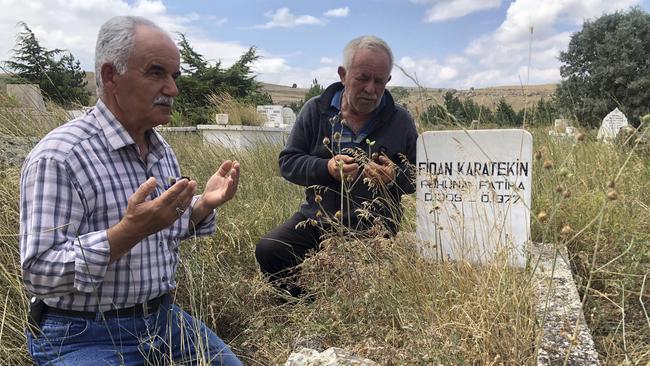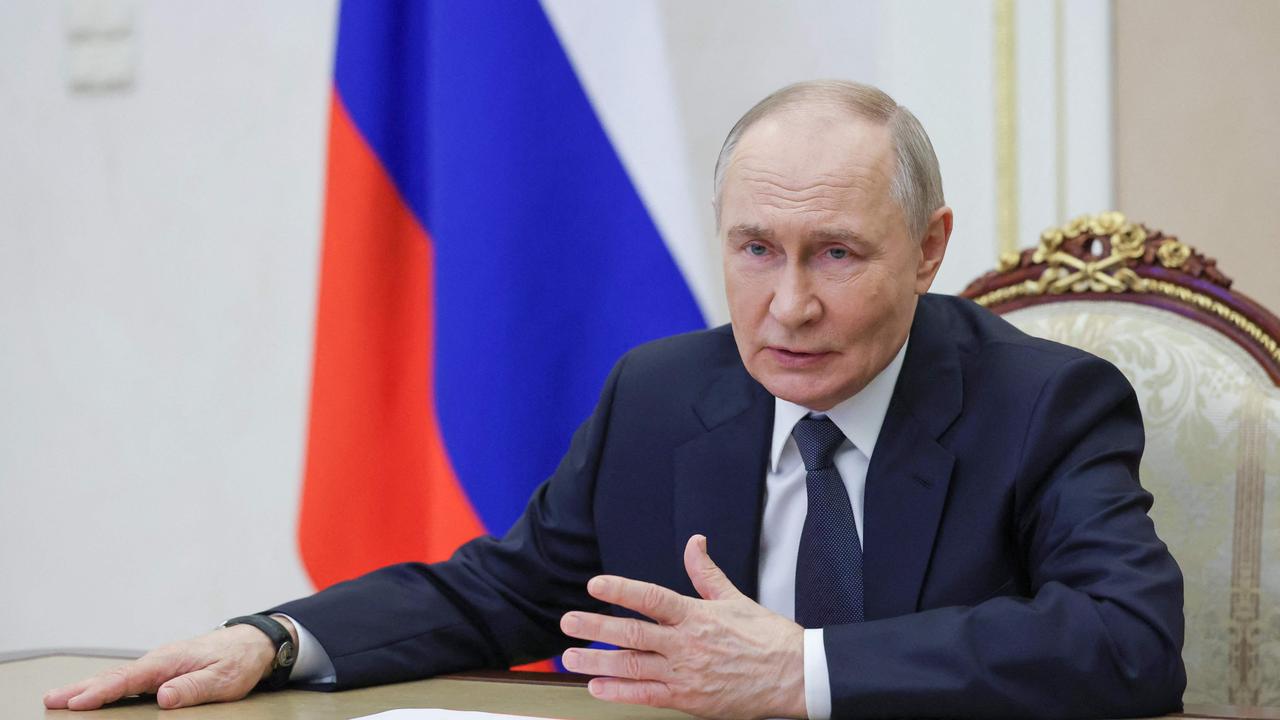Villagers offer a sheep for ‘real Turk’ Boris Johnson
Boris Johnson’s distant family in Turkey offer their views on his wit, his way with the truth and his messy hair.

Deep in the Anatolian plains, 80km from Ankara and 130km from the Black Sea coast, lies the village of Kalfat. Amid the wheat fields and green pastures, its dusty, quiet streets are usually untroubled by visitors other than the occasional wandering cow.
Its main sights include two mosques, a primary school and a defunct bus stop, where two stray dogs were scuffling in the dirt.
Many of the village’s population of about 3500 are farmers or herdsmen. In the hot afternoons, men come to gossip and drink tea in the village leader’s ramshackle office above the shop.
Usually there is not much to talk about, but last week the village was abuzz with remarkable news: one of their own had become prime minister of Britain.
“Boris is a real Turk,” said Satilmis Karatekin, 65, a grizzled former municipal taxi driver who claims to be Johnson’s distant cousin. His hair still has hints of blond. “We are very proud of him and how he is making the name of the village famous.”
This is the ancestral home of the Johnson clan, where the British Prime Minister’s great-great-grandfather was born in 1815. He did not stay long. In the 1830s, Haci Ahmet Riza Efendi left to make his fortune in Istanbul, 320km to the west, where he was granted the monopoly on supplying wax to candle manufacturers. It made him a remarkably wealthy man, and the family never looked back to their Anatolian roots, except for a day trip every century or so, most recently by Stanley Johnson, the Prime Minister’s father.
When Boris became foreign secretary, the locals suggested sacrificing a sheep in his honour; the offer still stands, should he wish to make a familial pilgrimage.
“We want Boris to come and visit, too,” said Karatekin, one of half a dozen villagers who crowded around a visiting correspondent, offering their opinions on everything from Turkish politics to farming. “But his hair is too messy. He needs to go and see a barber.”
“Maybe his hair is too thin,” opined another mustachioed villager. “Maybe that’s why it looks like that.”
In the village, the Karatekin family and their various cousins are known for their unusually sharp intelligence and their practical jokes, which amuse and infuriate their neighbours by turns.
Although many in the village support Recep Tayyip Erdogan, the Turkish President, they laughed off a poem, written by Johnson in 2016, which referred to him as a “wankerer” from Ankara and made fictional allusions to the president’s close relationship with a goat.
“We don’t mind about the poem,” laughed one villager, as another wiped a tear of mirth from his eye. “We don’t get much news here so we didn’t hear about it until recently. It’s quite funny.”
Aside from their wit, Johnson’s distant relatives are known for their blond hair. Omer Demir, 14, who is descended from a brother of a Johnson ancestor, stands out from the other children in the village with his light chestnut locks. Everyone agrees, with somewhat unwarranted enthusiasm, that he looks a lot like Boris.
“He’s very quick-witted,” said his father, Ahmet Demir. “Very funny, too.”
The descendants of the rather more urbane Istanbul branch of the family say the family connection to the village is “very tenuous, to say the least”.
Sinan Kuneralp, 73, a publisher and historian, is Johnson’s uncle once removed. His grandfather — Johnson’s great-grandfather — was prominent journalist Ali Kemal, the first member of the family to be born in Istanbul rather than the village.
Kemal spent the years 1909 to 1912 in exile in England. He was a passionate opponent of the Young Turks, a faction that seized power in 1913 before leading the Ottoman empire to ruin in World War I.
After the allies occupied Istanbul in 1918, he briefly served as interior minister in the widely despised government of the grand vizier Damat Ferid Pasha. During the Turkish War of Independence, supporters of the nationalists under Kemal Mustafa Ataturk fought backers of the sultan.
In November 1922, Ali Kemal was in a barber’s shop in the Passage of Flowers, an alley off what was the Grande Rue de Pera, Istanbul’s main shopping street, when he was bundled into a taxi and taken to the seaside town of Izmit by motorboat.
A poem by Nazim Hikmet describes what happened next: “I saw the blood run down into his moustache. Someone yelled: ‘Get him!’ It rained sticks, stones and rotten vegetables. They hung his body from a branch over that bridge.”
At the time of his death, Kemal had been married twice — once to Winifred Brun, a British-Swiss woman who died in childbirth. Their son, Osman, who was born in Bournemouth in 1909, adopted the surname Johnson during World War I. He later married Irene Williams of Kent, who gave birth to Stanley.
The current generation of Johnsons have retained their links to Turkey. In 1982, during his gap year, the Prime Minister visited Istanbul with his girlfriend Allegra Mostyn-Owen, staying with his uncle Kuneralp in the pleasant Istanbul suburb of Ortakoy.
Kuneralp remembers him as ambitious, a raconteur who enjoyed being the centre of attention. “He doesn’t like listening, but that suited me fine because I’m more of a listener myself,” he said. “I think he enjoys shocking and being provocative at the expense of his credibility.”
Today his nephew is the most powerful man in Britain and the Turkish branch of the family is thrilled, if a little apprehensive. “My grandfather would have been delighted. They share many things,” said Kuneralp. “He was a rather provocative columnist, too, but I think Boris is more economical with the truth. He was a man of conviction. I don’t think that Boris is a man of conviction.”
The Sunday Times



To join the conversation, please log in. Don't have an account? Register
Join the conversation, you are commenting as Logout